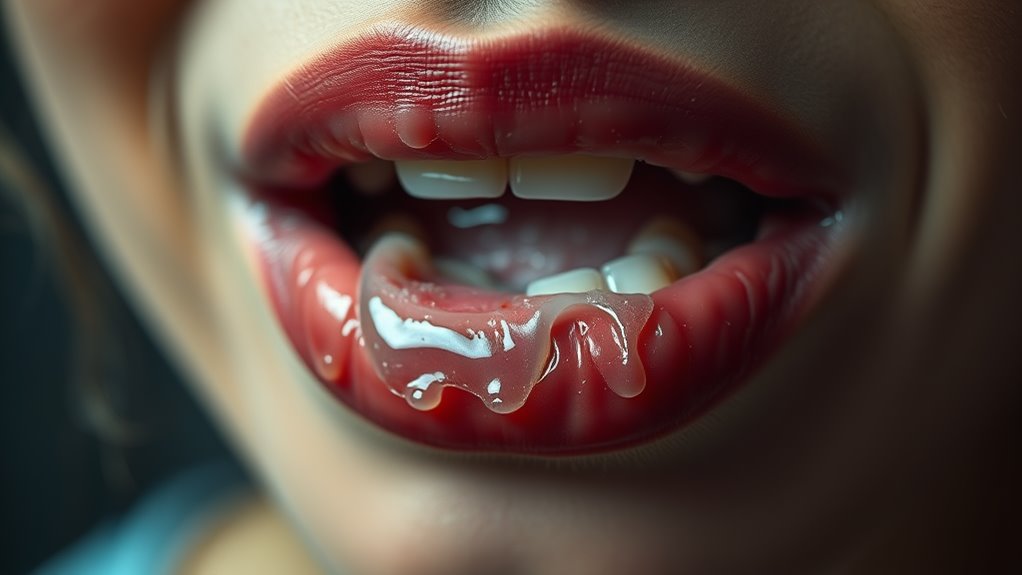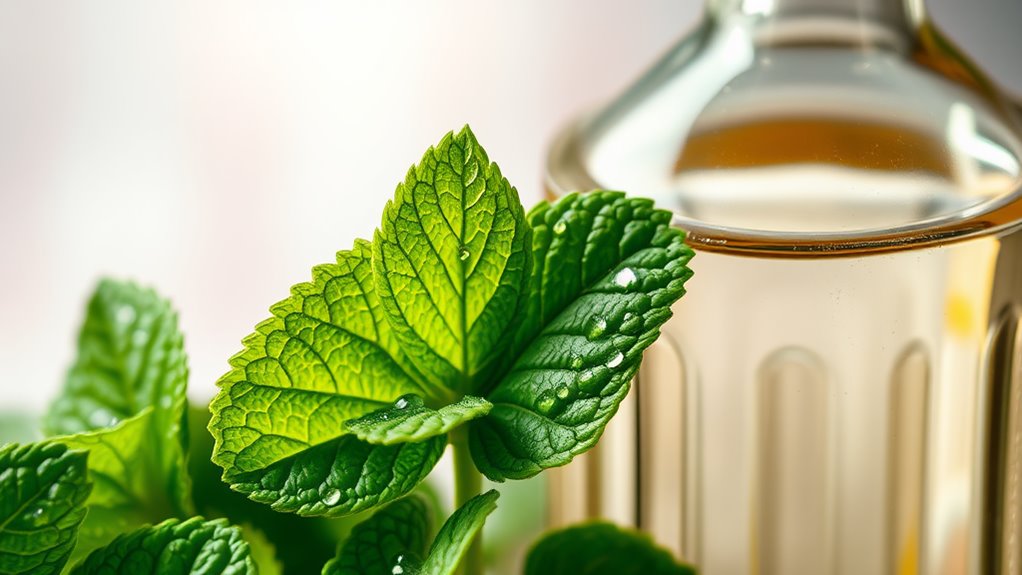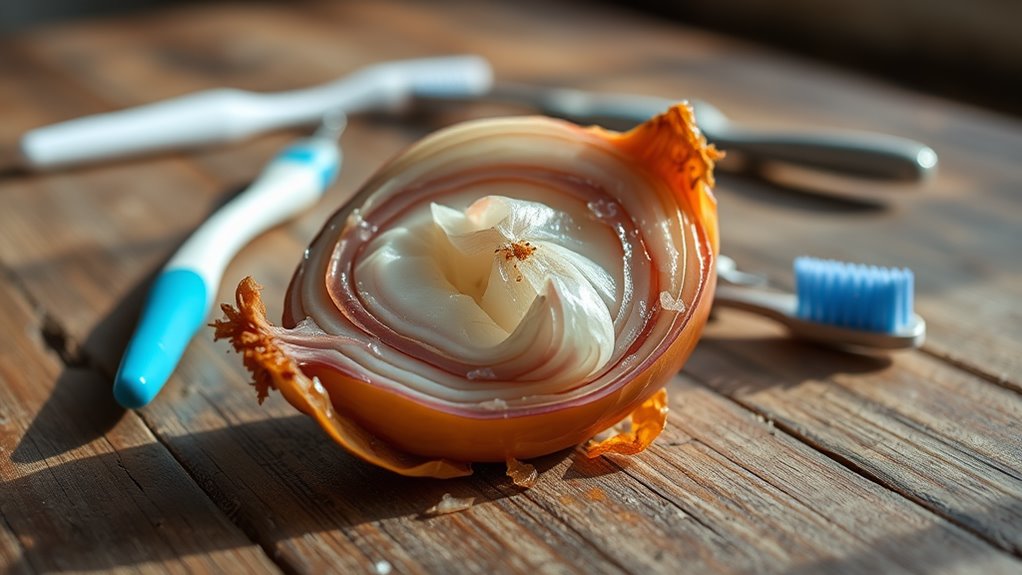The 5-Second Bad Breath Test Everyone Should Try!
Ever wondered about your breath’s freshness? Try the 5-second bad breath test! Simply lick your wrist, wait a few seconds, and sniff. A minty scent means you’re good, while any bad odor signals it’s time to freshen up. This quick method boosts your confidence in social situations by increasing awareness of your oral health. Want to know more about what influences bad breath and how to maintain it? Stick around for some helpful tips!
Understanding Bad Breath: The Basics
Bad breath, or halitosis, is more common than you might think and can stem from various causes.
It’s not just about what you eat; poor oral hygiene, dry mouth, and certain medical conditions can also contribute. You might’ve noticed an unwelcome odor after enjoying your favorite meal or when you haven’t had enough water.
It’s understandable; everyone experiences it at some point. You shouldn’t feel embarrassed; rather, it’s essential to understand that it can happen to anyone.
Regular brushing and flossing can help combat it, but staying hydrated and using mouthwash can make a difference, too.
The Science Behind the 5-Second Test
While assessing your breath might seem straightforward, the 5-second test incorporates some fascinating science that makes it effective. This quick method doesn’t just rely on your instincts; it taps into olfactory senses, inviting a deeper understanding of breath freshness.
Here’s why this test works:
-
Volatile Compounds: Your mouth produces odor-causing compounds that can signal bad breath.
-
Immediate Feedback: A swift inhale offers instant detection, making it easier to recognize unpleasant smells.
-
Personal Awareness: Engaging in this test helps you connect with your oral health, fostering a sense of control and belonging in your social interactions.
How to Perform the Test
To effectively perform the 5-second bad breath test, start by making sure your mouth is clear of any food or drink residues. Next, lick the inside of your wrist and wait a few seconds. After that, sniff the area you just licked. This simple test helps you detect any unpleasant odors that may linger in your mouth.
Here’s a quick reference table to guide you through the steps:
| Step | Action | Purpose |
|---|---|---|
| Clear your mouth | Rinse if needed | Avoid food interference |
| Lick wrist | Use your tongue | Collect breath scent |
| Sniff wrist | Smell your own breath | Identify odor |
This test can help foster connections when you’re out and about!
Interpreting Your Results
How can you tell if your breath is fresh or in need of a little attention?
After performing the test, the results can give you clear insights.
Here’s how to interpret your findings:
- If your breath smells neutral or minty, you’re in good shape!
- A slight odor might suggest it’s time for a brushing or a quick mouthwash.
- A strong smell indicates you should take immediate action, like flossing or chewing gum.
Common Causes of Bad Breath
Understanding what causes bad breath can be crucial, as it often stems from common habits and conditions.
Poor oral hygiene is a biggie; if you’re not brushing and flossing regularly, food particles and bacteria can build up, leading to unpleasant odors.
Certain foods, like garlic and onions, can temporarily contribute to bad breath too.
Additionally, smoking and tobacco use impact not just your breath but your overall oral health.
Dehydration can also play a role, as it reduces saliva that helps wash away food particles.
Medical conditions such as sinus infections or diabetes may even be underlying causes.
Being aware of these factors helps you take charge, ensuring you feel confident and connected in social settings.
Immediate Solutions for Fresh Breath
Even if you’re aware of the common causes of bad breath, sometimes you need quick fixes to freshen up.
Here are some immediate solutions you can try to keep your breath minty fresh:
-
Chew Sugar-Free Gum: It boosts saliva production, washing away food particles and bacteria.
-
Drink Water: Hydrating helps combat dry mouth, which often leads to bad breath.
-
Eat Fresh Herbs: Chewing on parsley, mint, or cilantro not only masks odors but also provides natural antibacterial properties.
When you incorporate these quick tactics, you’ll feel more confident in social situations.
Everyone deals with bad breath sometimes; it’s how you handle it that counts! Embrace these solutions, and you’ll always be ready to engage without worrying about your breath.
Long-Term Strategies for Oral Health
While immediate solutions can provide quick relief, establishing long-term strategies for oral health is crucial for maintaining fresh breath and overall well-being.
Regular dental check-ups should be a priority; those professional cleanings and checks keep you on track.
Don’t forget to brush twice a day and floss daily—sounds simple, but it’s often overlooked.
Incorporating mouthwash into your routine can also help fight bacteria.
Stay hydrated, too; water flushes away food particles and bacteria that cause bad breath.
Lastly, consider chewing sugar-free gum for a quick boost in saliva production.
Surround yourself with friends who share these healthy habits, and you’ll create a supportive community that values fresh breath and good oral health together.
The Role of Diet in Breath Freshness
Your diet plays a crucial role in your breath’s freshness; what you eat can make or break your oral health. Certain foods can leave you with unpleasant breath, while others can help keep it fresh.
Here’s what to consider:
-
Crunchy fruits and vegetables: Apples and carrots can naturally cleanse your mouth and boost saliva production.
-
Herbs and spices: Parsley, mint, and cinnamon not only add flavor but also fight odor-causing bacteria.
-
Hydration: Drinking water frequently helps wash away food particles and keeps your mouth moist.
When to Consult a Professional
If you notice persistent bad breath despite good oral hygiene and dietary choices, it’s time to consult a professional. Bad breath can sometimes signal underlying health issues that deserve attention. A dentist or doctor can help you uncover the root cause and recommend suitable treatments.
Here’s a quick guide on when to seek professional advice:
| Symptoms | Duration | Action |
|---|---|---|
| Bad breath | More than 3 months | Schedule a visit |
| Bleeding gums | Ongoing issues | See a dentist |
| Dry mouth | Frequently occurring | Consult a doctor |
| Unexplained mouth sores | Persistent | Get examined |
Taking that step can lead to a healthier smile and increased confidence, ensuring you feel your best around others.
Maintaining Fresh Breath Daily
To maintain fresh breath daily, it’s essential to adopt a few simple habits that can make a significant difference.
By incorporating these practices into your routine, you’ll not only feel more confident but also nurture connections with others.
-
Brush your teeth twice a day and don’t forget to clean your tongue, where bacteria often dwell.
-
Stay hydrated throughout the day; water helps wash away food particles and bacteria that lead to bad breath.
-
Chew sugar-free gum or mints after meals to stimulate saliva production, which naturally combats odor.




